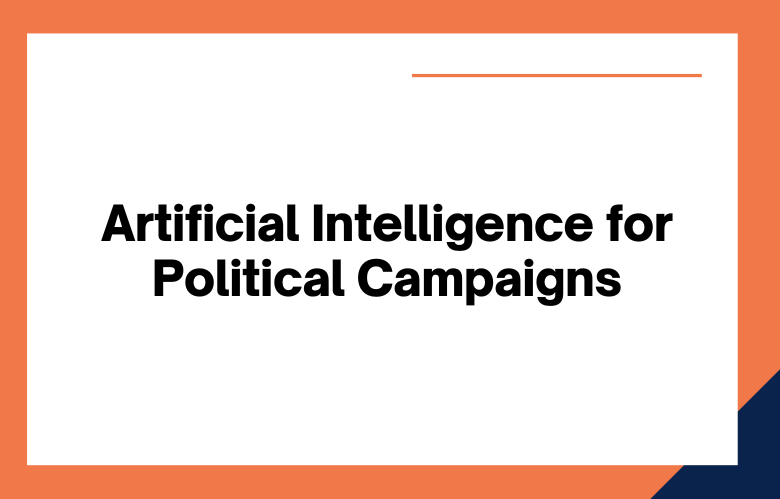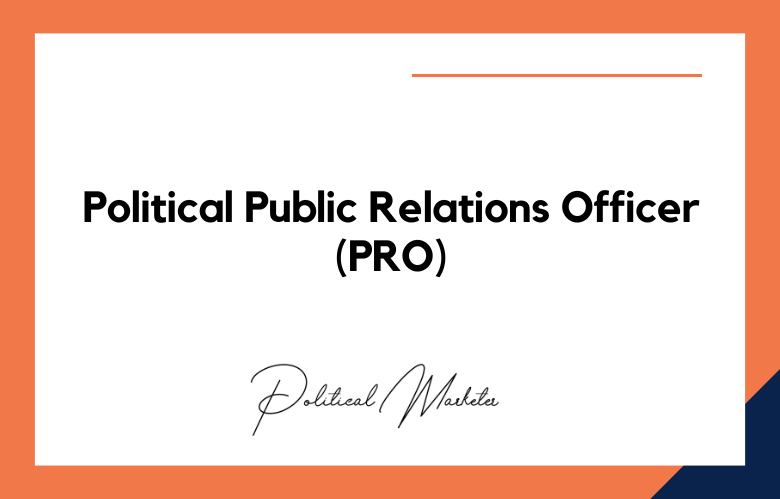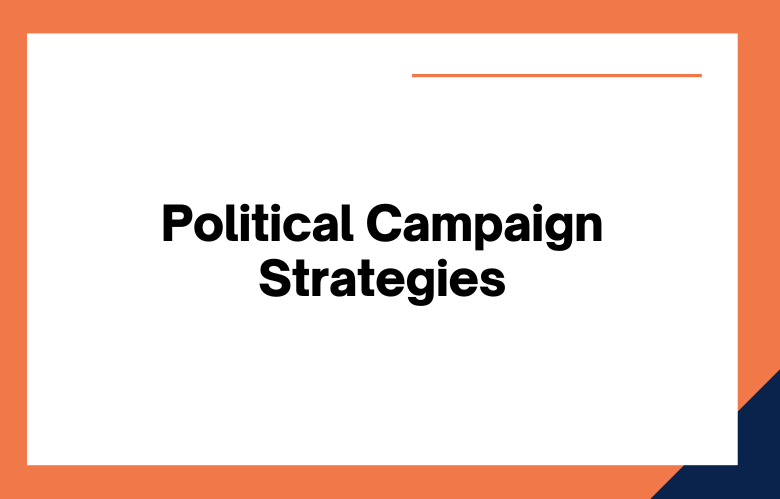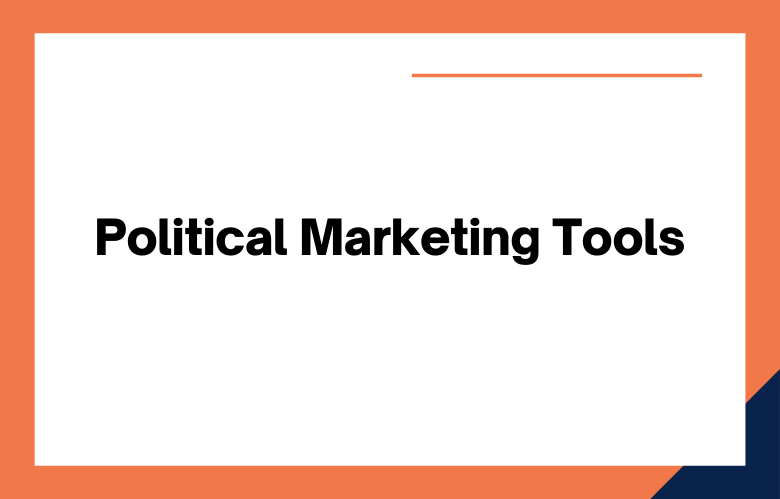In an age where artificial intelligence (AI) and machine learning are becoming increasingly commonplace, it’s no surprise that AI propaganda has become a primary tool used by political parties.
But what exactly is AI propaganda, and how is it changing how we view politics? We’ll examine AI propaganda in politics and discuss its implications for the future of digital propaganda.
What Is AI Propaganda?
AI propaganda refers to using artificial intelligence to craft personalized messages to target voters and influence their opinion or behavior.
Political parties often use it to spread their message more quickly and effectively than ever before.
The main goal is to persuade voters to adopt a particular stance on a given issue or vote for a specific candidate in an election.
This type of messaging seeks to exploit people’s emotions and preconceptions to further the agenda of a particular political campaign.
It’s more sophisticated than traditional propaganda methods because it can quickly analyze large amounts of data, allowing campaigns to tailor their messaging based on demographic information or other factors.
How Is AI Used for Political Messaging?
AI propaganda gives politicians unprecedented control over their messaging. They can use AI algorithms to segment their audience into different groups and create customized messages for each group based on what data suggests will resonate most effectively with them.
AI also allows political campaigns to track these messages in real time and adjust them accordingly if necessary.
This provides politicians with an efficient way to “test” different ideas and see which ones are most successful with their target audiences before committing resources.
How Does It Work AI Propaganda?
AI propaganda collects data from various sources, such as social media accounts, websites, emails, and news outlets.
This data can then be analyzed using algorithms that allow campaigns to identify key themes and topics of interest among different groups of people.
They can then craft messages that appeal specifically to those groups to influence their opinions or actions towards a particular candidate or issue.
The Impact Of AI Propaganda On Politics?
The use of AI propaganda has had a significant impact on politics in recent years. On the one hand, it has allowed campaigns to reach larger audiences more accurately than ever.
This has made it easier for politicians to spread their message further and faster than traditional methods would allow.
On the other hand, there are concerns over the potential misuse of these tools by foreign governments or malicious actors who could manipulate public opinion through targeted messaging without any accountability or oversight.
Artificial Intelligence and Political Propaganda in the Digital Age?
The world has entered a new era of digital propaganda. With the dawn of artificial intelligence, political campaigns have leveraged data-driven tactics to influence public opinion with unprecedented precision and accuracy.
I will explore how AI propaganda is used in politics and why it is so effective.
The Power of AI-Propaganda?
The power of AI propaganda lies in its ability to leverage large amounts of data and sophisticated algorithms to craft highly tailored messages that can influence opinions without people realizing it.
This makes it hard for people to distinguish between genuine political discourse and manipulated messaging designed purely for political gain.
It also allows politicians to reach large numbers of people with persuasive messaging quickly and cheaply, making it popular among those seeking political advantage.
The Dangers of AI-Propaganda?
The danger posed by AI propaganda lies in its potential for manipulation without detection. Without proper regulation or oversight,
Politicians can use these tools as weapons against their opponents or even their electorate by spreading false information or manipulating public opinion through targeted messaging campaigns that are nearly impossible to detect or counter.
The lack of transparency surrounding the technology’s use also heightens the risk of manipulation. Users may not be aware that they are being exposed to politically motivated messages crafted by an algorithm rather than genuine political discourse.
The Implications of Using AI-Propaganda in Politics?
Using AI propaganda in politics raises essential questions about the ethical implications of this technology and how we should regulate its use in the future.
This type of digital propaganda can be a powerful tool for influencing public opinion. Still, we must ensure that it isn’t used maliciously or to manipulate voters into supporting specific candidates or causes without their knowledge or consent.
We must also consider how governments can protect citizens from being manipulated by foreign actors who may use these tools to interfere with elections or influence public opinion on critical issues.
What Are the Risks Associated With AI-Propaganda?
The most significant risk associated with using AI for political messaging is that it can be difficult—if not impossible—to determine who is behind the message or where it originated from.
This lack of transparency can spread misinformation without anyone knowing who was responsible for it or where it came from.
Targeting specific demographics with tailored messages can quickly become exploitative if not done responsibly;
This could lead to further polarization within society as certain groups are singled out for manipulation by political campaigns.
The Benefits and Drawbacks of AI-Propaganda?
There are both benefits and drawbacks associated with using AI propaganda in politics. On the one hand, it allows politicians to quickly reach large numbers of voters with personalized messages tailored specifically to them.
This has the potential to be a powerful tool for influencing public opinion and increasing voter engagement. On the other hand, it can also be used as a tool for manipulation if it falls into the wrong hands.
Numerous cases have already been reported in which malicious actors have used AI propaganda techniques to spread misinformation or sway public opinion on specific topics.
Conclusion:
AI propaganda revolutionizes how political campaigns reach voters and influence public opinion on specific issues or candidates.
While this technology offers many benefits for reaching wider audiences more quickly and accurately, ethical considerations surround its potential misuse by bad actors who could spread misinformation without accountability or oversight.
As such, it is essential for people involved in politics—from campaigners to voters—to remain aware of how this technology works to make informed decisions when engaging with digital propaganda in an age of artificial intelligence.
Call: +91 9848321284
Email: [email protected]
AI-Propaganda in Politics: Digital Propaganda in an Age of Artificial Intelligence – FAQs
What Is AI Propaganda in Politics?
AI propaganda in politics refers to the use of artificial intelligence to influence public opinion through automated, algorithmic, or synthetic content across digital platforms.
How Is AI Used to Spread Political Propaganda?
AI enables large-scale content generation, social bot deployment, sentiment manipulation, and deepfake creation to amplify specific narratives or discredit opponents.
What Are Deepfakes and Why Are They Dangerous in Politics?
Deepfakes are AI-generated fake videos or audio clips that appear real. They can mislead voters, damage reputations, and destabilize democratic trust.
Can AI Detect Political Propaganda Online?
Yes. AI models trained in misinformation detection, network analysis, and sentiment tracking are being used to flag manipulative or biased content.
What Are Social Bots and How Do They Affect Political Discourse?
Social bots are AI-powered accounts that mimic human behavior to amplify propaganda, distort public debates, and create the illusion of popular consensus.
How Does AI Personalize Political Messaging?
AI analyzes user data to deliver hyper-targeted messages based on political leanings, emotional triggers, and browsing behavior, which can reinforce echo chambers.
What Are the Ethical Concerns Around AI in Politics?
Concerns include voter manipulation, misinformation, algorithmic bias, lack of transparency, and erosion of informed consent.
Is AI Propaganda a Threat to Democracy?
Yes. When misused, it undermines free choice, spreads disinformation, and polarizes electorates by manipulating perceptions at scale.
Which Countries Have Witnessed AI-Driven Propaganda Campaigns?
Countries like the U.S., India, Russia, and Brazil have reported incidents of AI-driven propaganda during elections or political movements.
What Is Algorithmic Amplification in Political Contexts?
It refers to social media algorithms boosting specific content—often political—based on engagement metrics, which can favor sensational or manipulative material.
How Can Citizens Identify AI-Generated Propaganda?
Look for emotionally charged language, suspicious sources, repetitive messaging, sudden virality, and lack of credible verification.
What Role Do Recommendation Systems Play in Political AI Propaganda?
They can trap users in ideological bubbles by consistently showing them content that aligns with their biases, reducing exposure to diverse viewpoints.
Can AI Be Used for Positive Political Engagement?
Yes. AI can also support civic education, policy analysis, voter outreach, and fact-checking—if used transparently and ethically.
How Can Governments Combat AI Propaganda?
Through regulations, public awareness campaigns, AI auditing, platform accountability, and investment in detection infrastructure.
What Is the Role of Data in AI Political Propaganda?
Data fuels AI models to segment audiences, craft tailored messages, and simulate political personas for persuasive messaging.
Are Political Campaigns Using Generative AI to Create Content?
Yes. Tools like ChatGPT, Midjourney, and custom AI models are increasingly used to create campaign visuals, slogans, speeches, and fake endorsements.
What Is Coordinated Inauthentic Behavior in AI Propaganda?
It involves multiple fake accounts or AI agents working together to push coordinated narratives or amplify disinformation campaigns.
Can Election Outcomes Be Influenced by AI Propaganda?
Potentially, yes—especially in tight races or among undecided voters, where misinformation can sway opinions rapidly.
What Safeguards Can Social Platforms Implement Against AI Propaganda?
Platforms can introduce content authenticity labeling, bot detection, human verification, and demotion of unverified viral content.
What Should Political Consultants Know About AI Propaganda?
They must understand both the strategic advantages and ethical risks of using AI, ensure transparency, and comply with electoral regulations.










